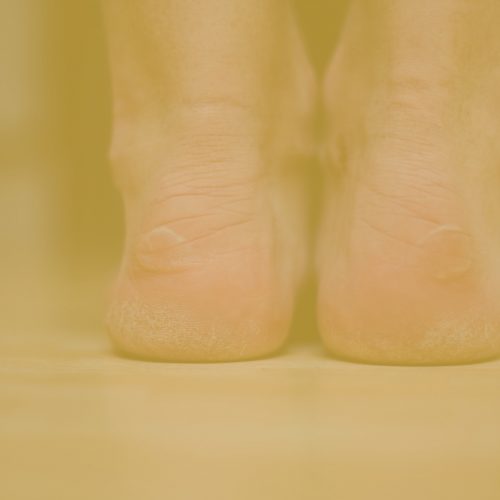Achilles tendonitis is a common ailment that affects many people, particularly those who lead active lifestyles or participate in sports. It is more frequent in those who are active or who play sports. The Achilles tendon, the biggest tendon in the human body, links the calf muscles and the heel bone. Achilles tendonitis is a condition that can develop if the Achilles tendon gets irritated or inflamed. However, the most important concern for many people is whether or not Achilles tendonitis ever really goes away.
The Reality of Achilles Tendonitis
Achilles tendonitis is more than just a fleeting pain in the heel; it manifests stress and strain on one of the body’s most vital tendons. The Achilles tendon, responsible for our ability to walk, run, and jump, undergoes a lot of wear and tear over the years. When subjected to excessive stress, either from intense physical activity, improper footwear, or biomechanical imbalances, it can become inflamed, leading to the condition known as Achilles tendonitis.
The primary symptoms include pain, swelling, and stiffness in the heel and tendon area. These symptoms can range from mild to severe, often worsening with physical activity. For many, the pain might be most noticeable when they get up in the morning or after prolonged rest periods.
However, there’s a silver lining. With the right care and attention, the painful symptoms of Achilles tendonitis can be managed and even eliminated. Individuals can return to their daily routines, enjoying activities they love without the shadow of pain.
Yet, it’s crucial to differentiate between symptom relief and structural changes. Over time, due to inflammation and stress, the Achilles tendon can undergo structural modifications. These changes, such as thickening or the development of tiny tears, are often irreversible. While they might not always cause pain, they are a testament to the tendon’s history of strain and the body’s attempt to heal and reinforce itself.
Therefore, while the immediate discomfort of Achilles tendonitis can be addressed, the long-term effects on the tendon structure remain. This underlines the importance of prevention, early detection, and proper management to ensure the tendon’s health and functionality throughout life.
Early Detection is Crucial
Like many other physical ailments, Achilles tendonitis operates on a principle that’s familiar yet often overlooked: prevention is better than cure. The importance of early detection in the case of Achilles tendonitis cannot be stressed enough, and here’s why:
- Minimising Damage: When inflamed over a prolonged period without intervention, the Achilles tendon can undergo more significant damage. This damage can range from minor tears to severe ruptures. Detecting the symptoms early and taking appropriate action can prevent these more severe complications.
- Faster Recovery: The earlier the condition is identified and treated, the quicker the recovery process. When addressed in its initial stages, the inflammation and pain can be managed more effectively, leading to a shorter downtime and quicker return to regular activities.
- Cost-Effective: Early detection and treatment can often be managed with simple interventions like rest, ice, and over-the-counter pain relievers. However, if the condition progresses, it might require more intensive treatments, including physical therapy or even surgery, which can be costly.
- Preventing Chronic Issues: Chronic Achilles tendonitis can develop if acute symptoms are ignored or not treated properly. Chronic conditions are harder to treat and can lead to long-term discomfort and limitations in movement and activity.
- Understanding Underlying Causes: Detecting the issue early provides an opportunity to understand the root causes, whether related to footwear, exercise habits, or biomechanical issues. This knowledge is invaluable in preventing future occurrences.
- Maintaining Physical Fitness: For athletes and fitness enthusiasts, early detection means less time away from training and a reduced risk of the condition affecting performance or leading to other injuries due to compensatory movements.
Proper Management
Managing Achilles tendonitis effectively is not just about alleviating the immediate symptoms but ensuring that the condition doesn’t recur or escalate. Proper management encompasses a holistic approach that addresses the root causes and the symptoms. Here’s a deeper dive into what this entails:
- Rest and Recovery: One of the primary steps in managing Achilles tendonitis is allowing the tendon to heal. This often means taking a break from activities that strain the tendon, such as running or jumping. Giving the tendon time to recover reduces inflammation and prevents further damage.
- Ice and Compression: Applying ice to the affected area can help reduce swelling and alleviate pain. Using bandages or specialised sleeves, compression can also provide support and reduce inflammation.
- Elevation: Elevating the affected foot can help reduce swelling, especially after prolonged activity or at the end of the day.
- Pain Management: Over-the-counter pain relievers, such as ibuprofen, can help manage pain and reduce inflammation. However, it’s essential to use these under the guidance of a healthcare practitioner rather than as a long-term solution.
- Physical Therapy: A trained physical therapist can provide exercises and stretches designed to strengthen the calf muscles and the Achilles tendon. This not only aids in recovery but also helps in preventing future occurrences.
- Orthotics and Footwear: Sometimes, Achilles tendonitis can result from improper footwear or a biomechanical imbalance in the foot. Custom orthotics or supportive shoes can help address these issues, reducing strain on the tendon.
- Gradual Return to Activity: Once the symptoms have subsided, it’s essential to reintroduce activities gradually. Jumping back into intense workouts can lead to a recurrence. A phased approach, possibly under the guidance of a trainer or therapist, can ensure a safe return to regular activities.
- Regular Check-ups: Even after recovery, regular check-ups with a podiatrist or orthopedic specialist can help monitor the tendon’s health and catch any potential issues early on.
- Education and Awareness: Understanding the causes, symptoms, and preventive measures for Achilles tendonitis can go a long way in managing the condition. Being aware of one’s body, recognising early signs, and knowing when to seek professional help are all part of effective management.
Proper management of Achilles tendonitis is a multi-faceted approach that requires attention, care, and sometimes professional guidance. It’s not just about treating the condition but ensuring a healthy and active future without the shadow of recurring pain.
Important: Avoid Overexertion
Avoiding overexertion is a fundamental aspect of managing and preventing Achilles tendonitis. The Achilles tendon, while robust and essential for movement, has its limits. When we push our bodies too hard, especially without adequate preparation or recovery, the tendon can become strained and inflamed. This is particularly true for athletes and individuals who engage in high-impact activities like running, jumping, or intense workouts.
Overexertion doesn’t just stem from a single intense activity; it can also result from repetitive, lesser strains accumulating over time. Listening to one’s body and recognising the early signs of fatigue and discomfort is crucial. Taking breaks, ensuring proper warm-ups and cool-downs, and varying the types of exercises can help reduce the strain on the Achilles tendon. Moreover, understanding one’s limits and gradually increasing the intensity of workouts, rather than diving into strenuous routines, can prevent undue stress on the tendon.
In essence, while pushing oneself to achieve fitness or athletic goals is commendable, it’s equally vital to ensure that this push doesn’t come at the expense of one’s physical well-being. Balancing ambition with caution can lead to sustainable, long-term health benefits without the setbacks of conditions like Achilles tendonitis.
Seek Expert Advice
Seeking expert advice is paramount when dealing with conditions like Achilles tendonitis. While general knowledge and self-care practices can be beneficial, there’s no substitute for the insights and guidance provided by professionals who specialise in foot and ankle health. These experts deeply understand the anatomy, biomechanics, and potential complications associated with the Achilles tendon.
Well Heeled Podiatry, for instance, is a beacon of expertise in this domain. Our team offers treatments tailored to individual needs and provides valuable prevention and long-term care advice. Their holistic approach ensures that patients receive immediate relief and strategies to maintain optimal foot health in the future.
Furthermore, we can identify underlying causes of Achilles tendonitis that the untrained eye might overlook. Whether it’s a subtle biomechanical imbalance, footwear issues, or specific activities contributing to the strain, their comprehensive assessments can pinpoint the root causes and recommend effective interventions.

While self-awareness and general care are crucial, the expertise of specialists like us at Well Heeled Podiatry elevates the management of Achilles tendonitis to a new level. Their knowledge, experience, and patient-centric approach make them invaluable allies in the journey towards optimal foot health.
In Conclusion
While the structural changes in the Achilles tendon due to tendonitis might be irreversible, it doesn’t mean you have to live with the pain forever. With the right approach, knowledge, and professional guidance, you can manage the symptoms and lead a pain-free life. Remember, your Achilles health should always be a priority. Pay attention to it; seek help when needed and stay informed.









